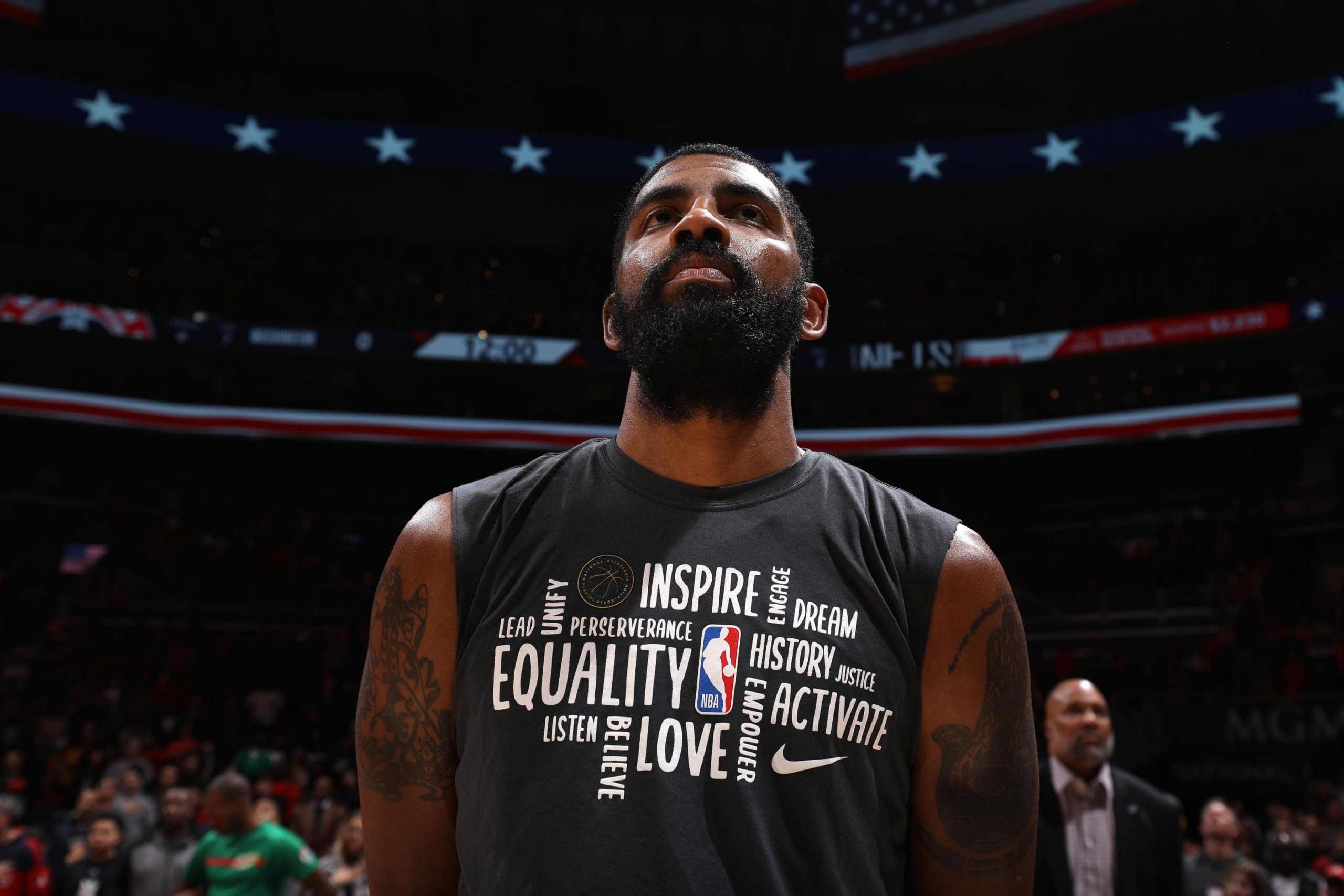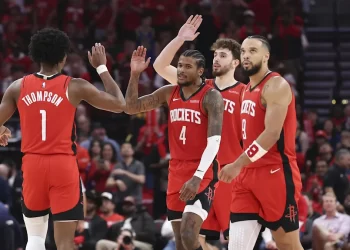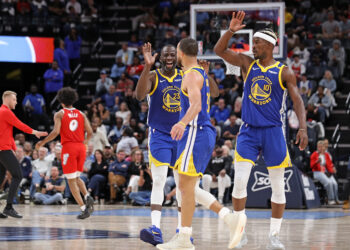By: Zachary Draves
If you need any more proof that racism is flourishing, look no further than the recent events in the sports world involving the treatment by fans, governing bodies, leagues, and politicians towards black athletes.
NBA
The incidents during the NBA playoffs involved white fans spitting at Trae Young of the Atlanta Hawks, throwing popcorn at Russell Westbrook of the Oklahoma City Thunder, and heaving a water bottle at Kyrie Irving of the Boston Celtics.
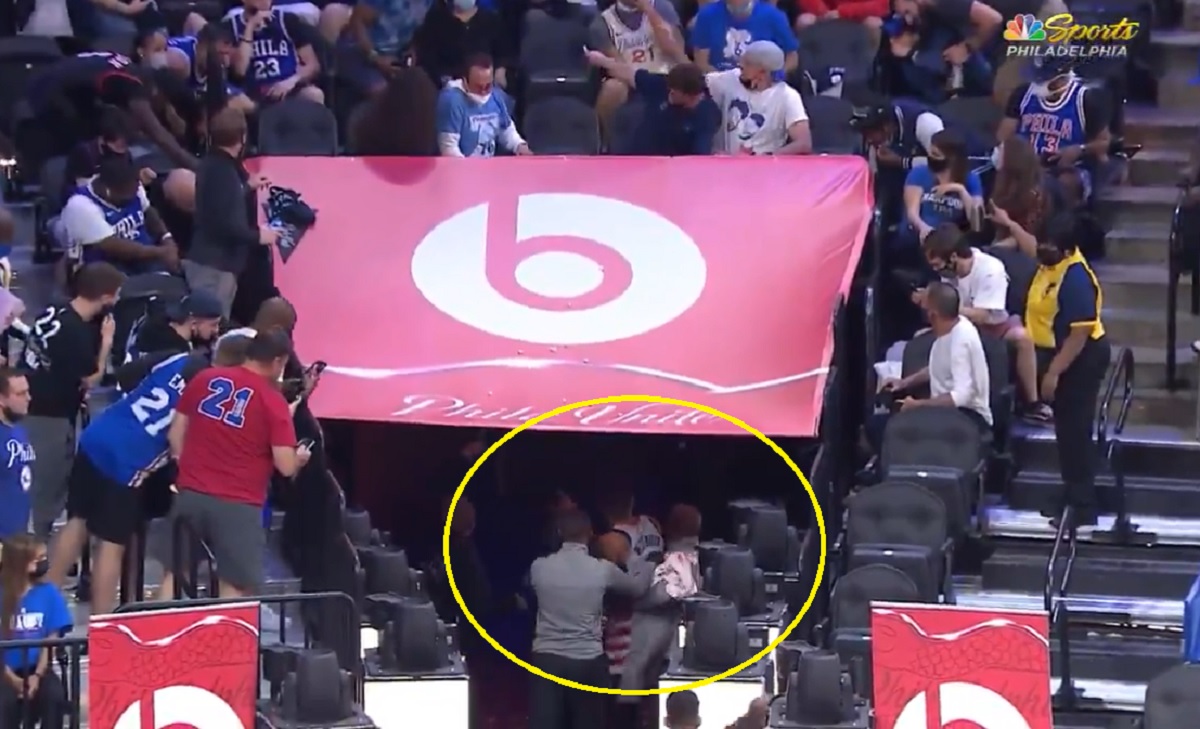
(Courtesy: Larry Brown Sports)
:no_upscale()/cdn.vox-cdn.com/uploads/chorus_asset/file/22550348/6TDCSLQSVEQLNOLBXNSGPUDTVE.jpg)
(Courtesy: Nets Daily)
While it was obviously the right decision to expel these fans from attending future NBA games among other potential consequences, this goes beyond the actions itself and speaks more toward a larger sociocultural phenomenon that is as American as cherry pie and that’s the continued public displays of dehumanization towards black people and including black athletes who are unapologetically outspoken and defiant.
It shouldn’t be that difficult to figure out that these players were targeted because they are some of the most vocal on pressing social issues related to race and have dedicated much of their time off the court to provide remedies in their own way.
Kyrie especially has been consistently active on everything from Black Lives Matter to standing in solidarity with the Palestinian people who are largely forgotten in our public discourse.
He is also someone who has dedicated himself to finding purpose beyond basketball and even though he has helped catapult the once lowly Brooklyn Nets into a legitimate playoff contender and his personal stats speak for themselves, he still gets ridiculed for not taking his role seriously.

(Courtesy: Clutch Points)
As a result, fans believe that they have every reason to try to dehumanize Kyrie and other players in public.
This is a stark reminder of how a certain segment of White America has historically viewed black athletes from slavery to the present day, which is to be seen when permitted and not heard at all.
You’ll often hear some white fans romanticize the skills and performance of their supposed favorite athletes who happen to be black.
They wear their jerseys, purchase an abundance of swag, emulate their speech patterns and hip aesthetics and confess how these athletes inspired them at some point to pick up a ball.
However, once those athletes start engaging in strong critiques of institutional power as it relates to race then all of sudden these white “fans” turn on them and openly defend those same institutions that were designed to benefit them in the first place.
Then they start lecturing about “stick to sports” or “shut up and dribble”.
It’s a continuous cycle of loving black style, athleticism, music, dance, and walk but showing no love for black people and when black people are marching in the streets and demanding equal justice these “fans” are nowhere to be found.
The NBA likes to brand itself as a model when it comes to social justice and while the players have practiced what they preach in profound ways the league infrastructure needs to do the same especially if these incidents continue to manifest.
Naomi Osaka
And if individual acts weren’t enough we saw in France the institutionalized dehumanization of Naomi Osaka.

(Courtesy: Tennis World USA)
During her brief appearance at the French Open, Naomi made a bold declaration that she would not talk to the media as is usually required of the players to focus on her mental wellness.
She was told that she had to pay a fine and was willing to do so and have that be allocated to mental health initiatives.
After being bombarded with vicious attacks from the tennis establishment and the media itself, she officially pulled out of the tournament and explained the reason due to not wanting to be a distraction as well as highlighting her struggles with depression dating back to her now-infamous US Open final in 2018 against Serena Williams.
This sparked an already ongoing discussion surrounding mental health in sports and whether or not sporting institutions are providing adequate resources to athletes that are struggling.
Undoubtedly, this discussion has to factor in race because of how mental health is portrayed within the context of black athletes.
Black women especially face enormous stigma due to expectations that they have to always be strong and in control and ongoing historical trauma along with structural discrimination creates profound distrust of the mental health profession.
Naomi remained undeterred in her convictions and given her recent history of activism particularly during last year’s US Open when she wore a mask sporting the names of victims of racial injustice, she continues to exemplify a commitment to change.
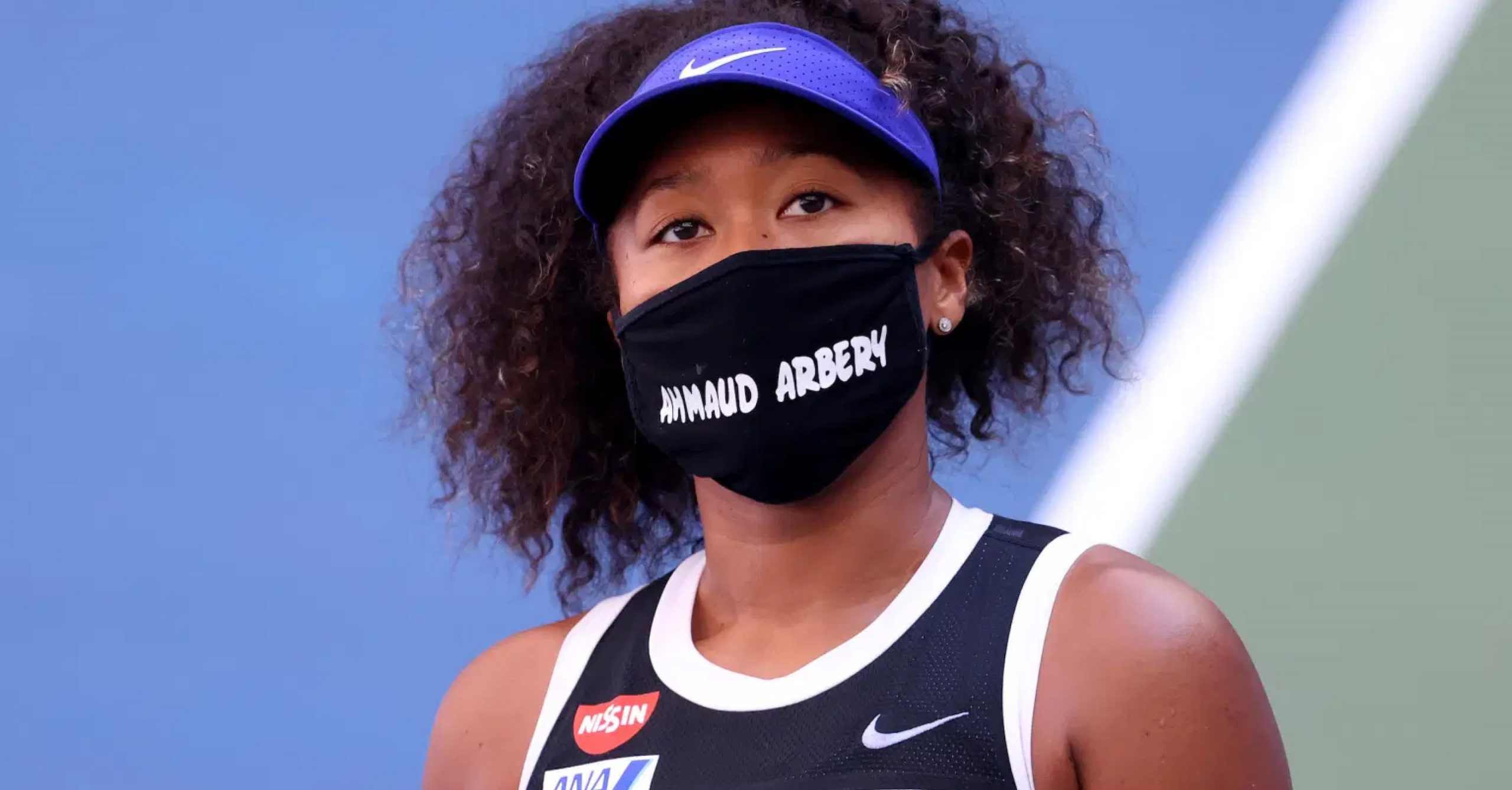
(Courtesy: Naomi Osaka)
She reminds us that black women are in fact human.
NFL
Institutionalized dehumanization reared its ugly head when it was revealed in early June that the NFL had engaged in “race norming” that ultimately lead to black former players being denied their just compensation as part of a $1 billion settlement afforded to former players with traumatic brain injuries.
The NFL pre-supposed that the players were of “low cognitive function” and therefore weren’t entitled to that money.

(Courtesy: NBC Sports)
This is a league that is claiming that they are now on the right side of history after the summer of 2020 and engaged in various PSA’s that said all the right things, but it was pure performance.
Colin Kaepernick remains in exile, there are no black owners, and only two black head coaches.
The NFL embodies performative activism better than most and there are certainly plenty to go around.
Gwen Berry
And if you think it can’t get any worse, look no further to the treatment of Olympic hammer thrower Gwen Berry.

(Courtesy: St. Louis American)
After placing third in the Olympic trials and solidifying a spot on the team for the upcoming Tokyo games, Gwen made a statement during the playing of the national anthem.
She turned her back from the flag and proudly displayed a shirt reading “Activist Athlete”.
/cloudfront-us-east-1.images.arcpublishing.com/gray/W6IUUJ5HKRHE7AAGKUORAECLZA.jpg)
(Courtesy: 13ABC)
(Courtesy: Yahoo News)
The vicious reaction among the insurrectionist crowd was pure misogynoir, racialized misogyny as coined by Dr. Moya Bailey in 2010.
Some even had the audacity to call for her removal from the team or demand that she leave the country.
These are the same people who rally against the so-called cancel culture and are infiltrating school boards demanding that the true history of this country not be taught based on a theory that they don’t know anything about that isn’t even taught in schools.
Ironic much?
They are also the most intellectually lazy among us whose response to Gwen’s protest is to say that she should leave America if she doesn’t like it here.
She is more patriotic than they will ever be because to paraphrase James Baldwin she loves this country so much that she is willing to critique it perpetually.
She embodies the spirit of Dr. Martin Luther King Jr. to the fullest when he said on the night before his assassination in Memphis that America needed to stay true to what it said on paper.
Gwen loves this country enough to do her part to see it become what it preaches.
And by the way, these same people wholeheartedly threw their support behind a man who said that he wanted to “Make America Great Again” a slogan inferring that America was somehow not great, but did anybody call for him to expelled from this country or say that the premise of that slogan was unpatriotic?
No matter what these people, Gwen will not be deterred and she is taking that fighting spirit all the way to Tokyo and beyond and those of good conscience will support her every step of the way.
The Reality
All these incidents prove that systemic racism still permeates and that America’s relationship to black athletes is purely conditional.
Loving black culture and not black people reinforces the problem.
We have to call it for what it is.
Otherwise, the dehumanization of black athletes will continue.


 NFL
NFL